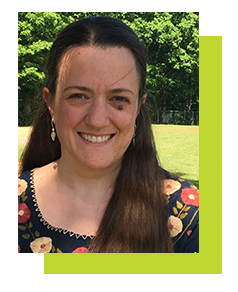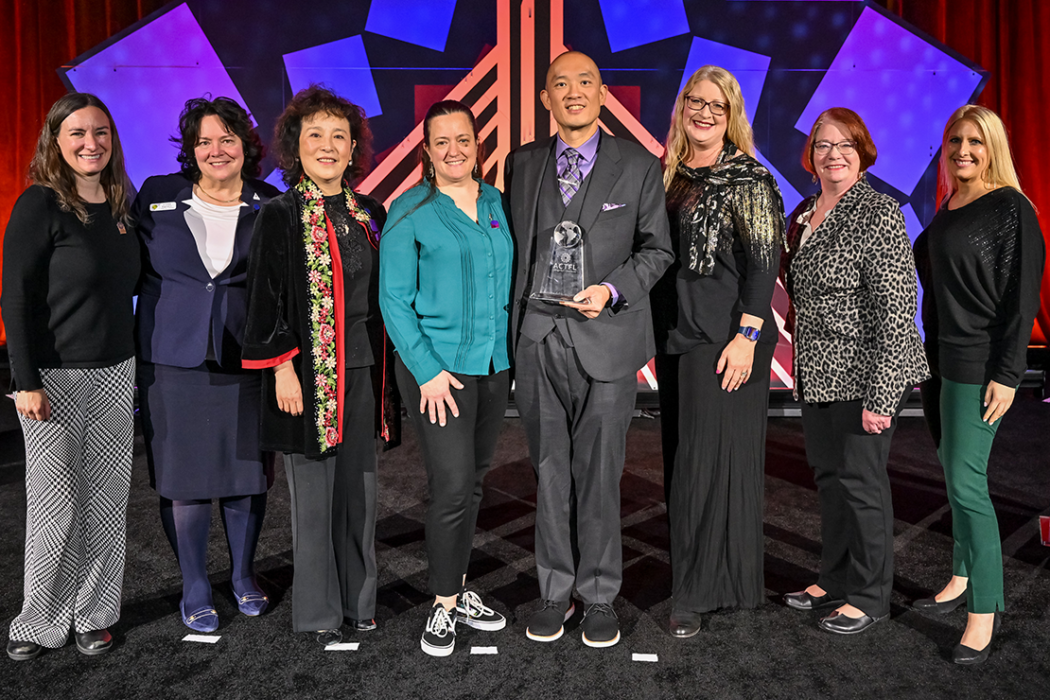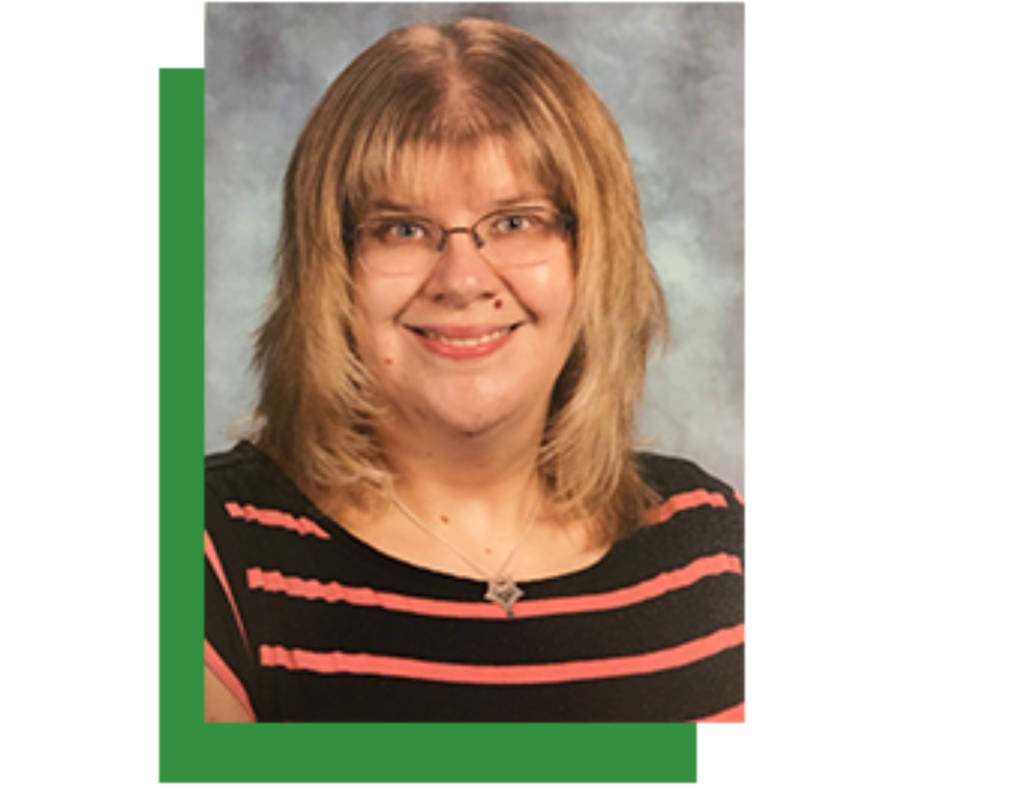2019 ACTFL National Language Teacher of the Year
Rebecca E. Aubrey
Ashford School, Ashford, CT, NECTFL, Spanish

Effective language learning and cultural competence are inextricably connected and are of value to all learners to develop into citizens who are self-aware and respectful of the diversity in our communities. When students develop cultural competence, they are able to respect and interact with people from diverse cultures, whether they be from a different country, a different part of the United States, or do things differently to adapt for a disability. While this functional purpose is important, language learning is also simply personally enriching for students and can ignite a lifetime of curiosity and exploration.
First, all learners, regardless of emotional or academic challenges, should have the opportunity to study a language. In many schools, students who are not on a college-track, or receive Special Education or other intervention services, aren’t offered the opportunity to study languages. This is a serious disservice to them. It does not adequately prepare students for careers or citizenship in diverse communities, and it denies them the personal enrichment that language learning provides. Just as we plan for the multiple intelligences of our students, we must also be prepared to effectively teach the learning needs of all of our students and give them the breadth of education that they deserve.
Secondly, cultures should be at the core of what we teach. Culture hooks students with an engaging and meaningful context for language learning; language is the tool for learning about cultures. When my students talk about Spanish class, it is never a grammatical nuance or new vocabulary word that excites them, it is the culture: saving the monarch butterfly, wondering what cuy tastes like, or examining the feats of the Incas. Cultural learning engages students to ask questions, research something a little more, and empowers them to travel. Language learning helps students to become more aware of who they are both linguistically and culturally. They make comparisons to English, developing a deeper understanding of how English works. As students study cultures, they notice things that appear “weird”, but with thoughtful scaffolding, they can become more aware of their own traditions. As they question other cultures, they begin to question their own. This is personally enriching because it helps students develop a stronger sense of their personal identity.
Finally, developing cultural competence is of value for helping all learners become respectful of the diversity in our communities, and supports good citizenship skills. When our students get their tongue tied as they struggle through the language, they develop empathy with the English language learners in our communities. When they examine a culture, students are not only learning about that culture, but also increasing their comfort level with the fact that diverse cultures exist. When equipped with tools for respectful inquiry about diverse cultures, students are empowered to apply these independently when confronting new cultures in their future education, careers, and lives. In this way, language learning experiences support good citizenship towards their neighbors and the world and inform opinions in voting and other institutions of our democracy.




